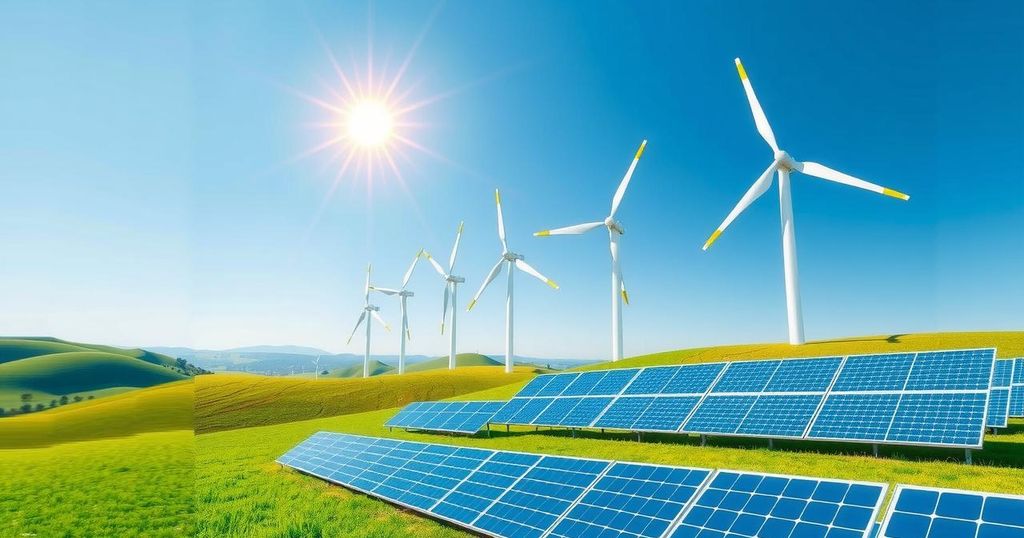Strengthening Energy Ties: The Need for China-LAC Cooperation
China’s relationship with Latin America and the Caribbean has progressed significantly since 2014, especially in energy cooperation. Recent agreements aim to address climate change through enhanced collaboration on clean energy. Both sides benefit mutually, with shared knowledge, especially in areas like renewables. This partnership could also model solidarity for other Global South nations.
Since President Xi Jinping announced the vision for a China-Latin America and the Caribbean (LAC) community in 2014, relations have significantly progressed. Recent developments were highlighted during the fourth ministerial meeting of the China-CELAC Forum, which took place in Beijing on Tuesday. Two key documents—a declaration and a joint action plan—were adopted, marking a new chapter in China-LAC cooperation that aims to drive growth across various sectors, particularly in energy.
Climate change remains a pressing global issue, impacting both Asia and LAC regions significantly. In light of this, it is crucial for China to enhance its collaboration with LAC nations in the energy sector, striving to balance climate objectives with energy security. Recent extreme weather events, like record heat and severe droughts in both China and LAC nations, underscore the urgent need to address these challenges
As noted, in 2022, the Yangtze River basin experienced water shortages and blackouts due to extreme heat. Similarly, 2023 witnessed major outages in Brazil, Ecuador, and Colombia, largely attributed to the El Niño phenomenon. These incidents exemplify the pressing need for cleaner energy solutions, as highlighted by President Xi’s emphasis on transitioning to green economies globally.
China is ramping up efforts in clean energy generation to bolster a consistently reliable energy supply. LAC nations, rich in renewable resources, have the potential to enhance their clean energy production through stronger ties with China. A focus on renewable sources such as hydropower, wind, and solar energy could lead to mutual benefits in energy efficiency and availability.
The deepened partnership in energy has the dual benefit of advancing LAC nations’ social and economic objectives while also aiding the transition to greener energy for wider regions, especially among Global South countries. Brazil’s green energy advancements, characterized by significant increases in solar and wind power production, offer valuable lessons for China, highlighting the potential for knowledge exchange.
The International Renewable Energy Agency has noted Brazil’s impressive leap in solar energy outputs. In 2024 alone, the country added 15.2 GW of solar capacity partly thanks to ambitious policies encouraging further solar adoption. Furthermore, LAC countries could implement learning from China’s development of clean energy zones and integrated resource management strategies.
An emphasis on enhancing power grid resilience is necessary for LAC countries as they increase renewable energy capacity. This includes bolstering energy storage and improving load management within their power systems. China’s experience in establishing smart grids could provide a roadmap for LAC nations aiming for optimal resource integration.
The prospects for China-LAC collaborations extend beyond addressing climate change; they also hold promise for promoting a comprehensive energy transition. By expanding market access and mutual cooperation, both parties can cultivate more industry-driven clean energy initiatives.
In conclusion, the partnership between China and LAC nations is laying the groundwork for a cooperative model that could inspire solidarity among Global South countries. As they deepen their collaboration, China and the LAC can unlock vast opportunities for growth toward a sustainable future.
China and the Latin America and Caribbean (LAC) nations are at a pivotal moment for enhancing their energy cooperation amid pressing climate challenges. The recent agreements aim to foster sustainable development through shared expertise in clean energy. With both parties learning from each other’s strengths in energy production and management, their collaboration could serve as a global benchmark for how cooperative efforts can address environmental issues while promoting economic growth. Overall, the deepening ties may provide a robust framework for mutual prosperity in a changing world.
Original Source: www.chinadaily.com.cn




Post Comment